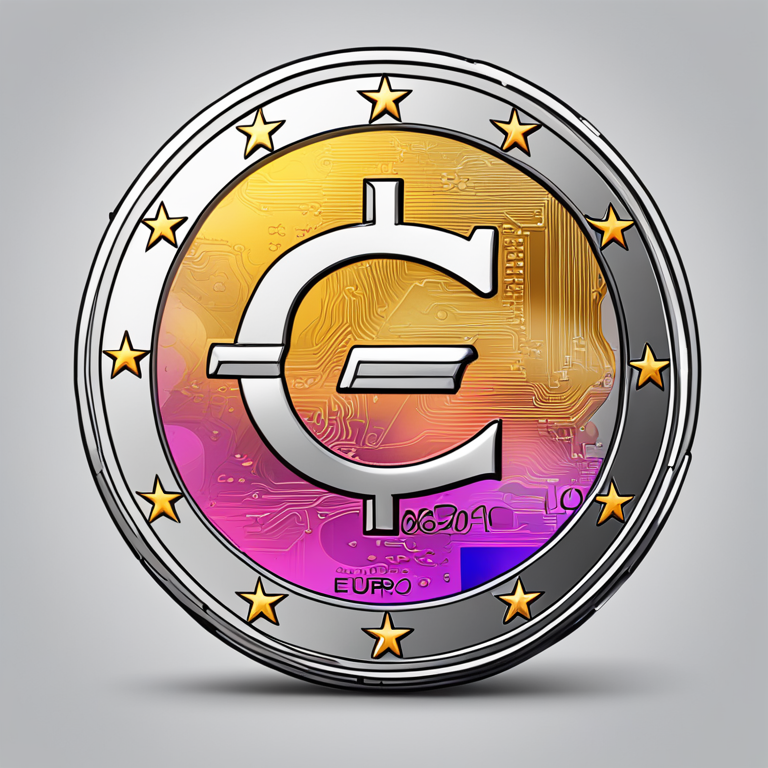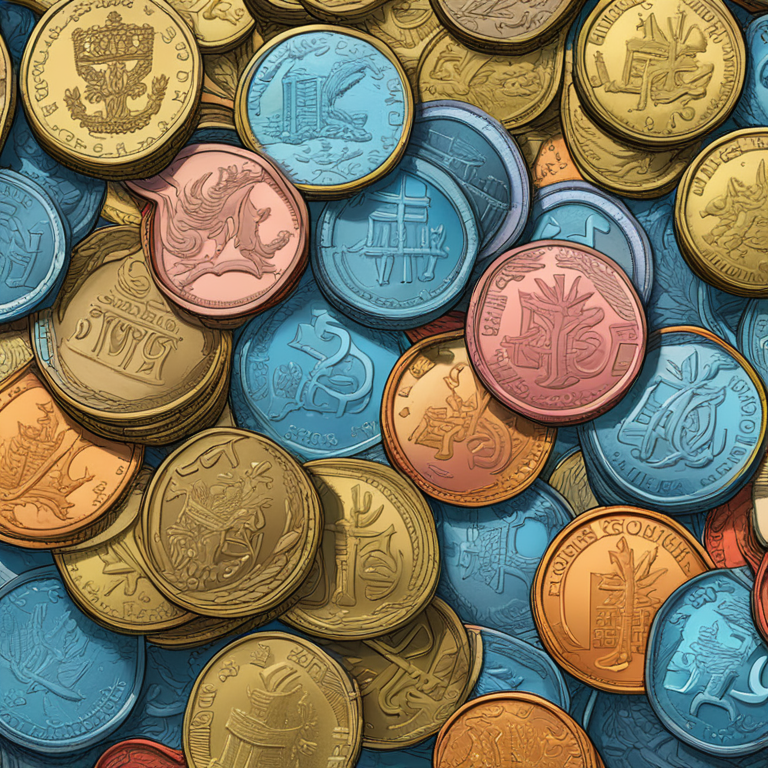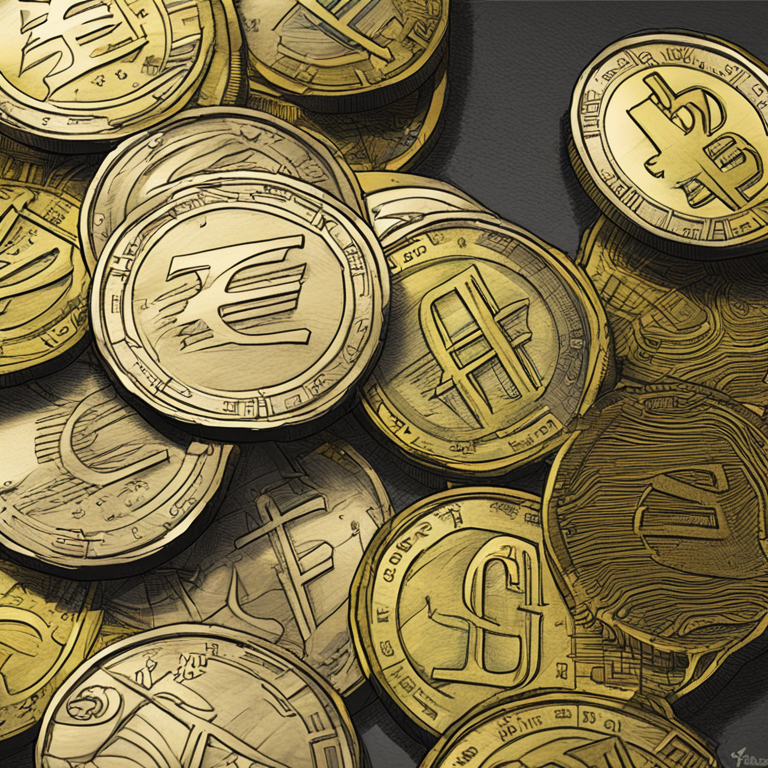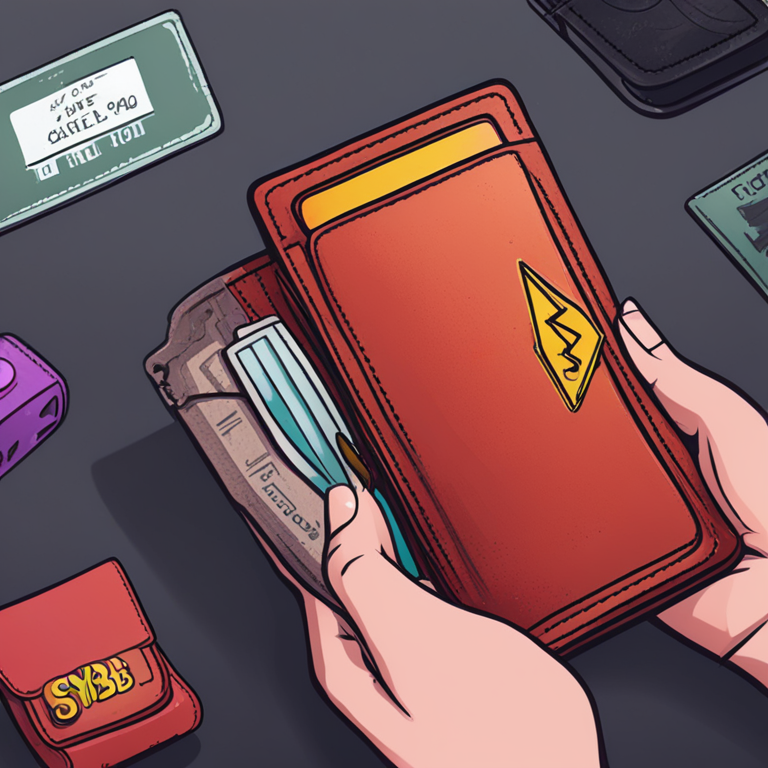
Introduction
So, you’ve probably heard the whispers about the digital euro potentially taking over the world—err, I mean, Europe. But wait, Sweden's central bank, the Sveriges Riksbank, has jumped in to reassure everyone that their beloved Swedish krona isn’t going anywhere. 🎉 In a memo that recently hit the stands, they explained that the digital euro, which is in its planning stage, might actually bring about some advantages, particularly when it comes to making the payment system more robust and competitive. Despite a teeny tiny shift away from traditional bank deposits, the Riksbank believes this impact will be limited due to a proposed cap on individual holdings of digital euros. Essentially, they’re saying, "Don’t worry, be happy!"
More interestingly, while the digital euro is primarily aimed at eurozone countries, there's a nifty little proposal for non-eurozone members to join the digital party through special agreements with the European Central Bank (ECB). This means folks and businesses outside the eurozone will have a fair shot at using the digital euro, leveling the playing field a bit. The Riksbank remains cool and collected, arguing that some good ol' institutional factors will keep the krona from being "crowded out." For instance, paying taxes and wages in Swedish kronor pretty much cements its status as the go-to currency.
Oh, and in case you’re wondering, yes, Swedes can use digital euros even if they haven’t vacationed in Paris or Rome. Businesses in Sweden can accept digital euro payments, but they’ll need to transfer those euros to a bank account just like businesses in the eurozone. It’s a small world after all!

Potential Impact on Swedish Krona
Okay, let’s talk about the million-krona question: how will the digital euro affect the Swedish krona? Full disclosure, the impact could be multi-layered. One potential downside is that high inflation could cause price instability, prompting businesses to price their goods in euros instead of kronor. This might also lead people to hold onto their euros as a refuge from krona-related uncertainties. This phenomenon is poetically referred to as a “flight to quality.” Très chic, but not so great for the krona.
The release of a digital Swedish krona, or e-krona, could play a big role here. The Riksbank hints that this move hinges quite a bit on how the digital euro evolves. If the digital euro becomes popular, an e-krona could solidify the Swedish currency's position domestically. In other words, they're thinking of building on the same technology and regulations crafted for the digital euro, which might cut down on costs and complexities. A win-win!
Moreover, having both the digital euro and a theoretical e-krona could smooth out cross-border payments, making it easier for Swedes to send and receive money internationally. For all those Swedes dreaming of owning a little piece of Provence or doing business with Berlin, this could be a game-changer.
Let’s also not forget, the European Central Bank (ECB) has launched a two-year exhaustive planning phase for the digital euro, which includes finalizing rules, picking private sector partners, and running loads of experiments. The potential benefits are enormous, particularly as it could ward off some significant drawbacks linked to not having a digital euro. Interestingly, the ECB might limit the amount individuals can hold in digital form, somewhere between 3,000 to 4,000 euros. It’s like having a kid's allowance, but for grown-ups.
So, to wrap it all up, while the digital euro is making waves, Sweden's central bank seems to be rolling with the punches and ensuring the Swedish krona doesn't turn into a relic of the past. Think of it as a cultural preservation project with a modern twist. Cheers to that! 🍻

Broader use of digital euro
Let's be real – the thought of ditching the classic Swedish krona might have given some of us a few sleepless nights. But fear not! According to Sweden’s central bank, the digital euro won’t shove our beloved krona out of the spotlight. In a recent staff memo from the Sveriges Riksbank, it’s clear that they see some juicy benefits in the digital euro, like a more competitive payment scheme. Sure, there could be a slight nudge away from traditional bank deposits, but worry not, folks! The bank reassures us that this won't be a big deal, thanks to the proposed cap on individual holdings of digital euros.
Believe it or not, the digital euro isn't just a fancy toy for eurozone countries. A proposal is brewing that would allow non-eurozone countries to hop on board through agreements with the European Central Bank (ECB). This means that both residents and businesses in these countries could enjoy a digital euro experience as if they were in the eurozone, but without dealing with the eurozone drama.
Non-eurozone access
So, how about this digital euro reaching the farthest corners of Europe? The Riksbank is cautiously optimistic, arguing that institutional factors should keep the krona safe and sound. Government transactions in Sweden are carried out in kronor, which solidifies its top-dog position. Think about it – since we pay our taxes in kronor, it makes sense we’d want our paycheck in kronor too, right? It’s this “you scratch my back, I’ll scratch yours” logic that ensures Swedish businesses also prefer to operate in the local currency, charging customers in kronor to keep the cycle going.

EU's digital euro initiative
The European Central Bank (ECB) isn’t taking any half-baked measures either. They've set off on a two-year planning adventure for the digital euro project, aiming to finalize the rules, pick private sector partners, and conduct a bunch of tests and experiments. The current draft proposal, albeit subject to change, tantalizes us with the potential perks of a digital euro. On the flip side, the absence of one could have some serious downsides.
Planning stage
This planning stage isn’t just about scribbling down ideas on a whiteboard – it’s serious business. The ECB will delve into the nitty-gritty of how this digital currency will be regulated, while scouring the private sector for potential partners to help bring their vision to life. Testing and experimentation will be key elements, giving them crucial insights to smooth out any kinks before the grand digital euro reveal.
Draft proposal
In the draft proposal, there’s talk of imposing restrictions on how much digital money individuals can hold – with values being tossed around between 3,000 to 4,000 euros. This cap aims to prevent any major shifts in the financial landscape while still promoting the benefits of adopting the digital euro. It’s all about balance, people!
Meanwhile, the digital euro could pose a challenge to the Swedish krona’s stability under specific conditions, like high inflation. Businesses might migrate to pricing in euros, and individuals could prefer to store their wealth in euros, regarded as more stable. This "flight to quality" could potentially weaken the krona, reinforcing the importance of Sweden’s parallel development of an e-krona, ensuring its enduring relevance in a more digitally savvy world.
An e-krona, developed in tandem with the digital euro, could streamline cross-border payments and potentially reduce launch costs by piggybacking off the technology and regulations set by the digital euro. The symbiotic relationship between these digital currencies could usher in smoother financial transactions across borders and a more interconnected European monetary ecosystem.

Swedish e-Krona development
What’s the buzz, you ask? Well, let’s talk about the digital euro’s potential impact on the good old Swedish krona. Sweden’s central bank, the Sveriges Riksbank, recently weighed in on the topic – and their take was pretty reassuring for those concerned about their beloved krona vanishing into the digital ether.
In a recent staff memo, the Riksbank identified a bunch of potential upsides for Sweden if the digital euro becomes a thing, from a more competitive payment system to setting a cap on individual holdings to avoid a mass exodus from traditional bank deposits. Seriously, who doesn’t love a cap on things that could potentially disrupt the financial world?!
Plus, there’s the possibility that the digital euro could extend its reach beyond the eurozone. Imagine non-eurozone members getting access through agreements with the European Central Bank (ECB). Even with such access, the Riksbank remains confident that institutional factors won’t let the krona be "crowded out." After all, the Swedes like paying taxes and salaries in their own currency and businesses feeling comfy charging customers in kronor. Add to that the possibility of Swedes using digital euros without venturing into the eurozone, and it looks like there’s enough wiggle room to coexist.
Potential threats to krona stability
Hold on to your coffee mugs, because while the digital euro seems like a positive step, it could pose some threats to the stability of the Swedish krona. High inflation can lead to some wild price swings, and in tricky economic times, businesses might begin to price things in euros to maintain stability. This scenario can create a financial shift where individuals and businesses start leaning more towards holding euros rather than krona, potentially weakening the latter.
The central bank hinted at a "flight to quality," where euros could be perceived as a more stable currency compared to the krona in times of high inflation. This exact type of scenario makes everyone hold their breath, hoping they don’t end up like the Titanic amid an iceberg of financial turmoil. As inflation rises, money could indeed start drifting away from the krona to euros, creating a bit of a headache for monetary policy setters in Sweden.
Dependence on digital euro development
The future of Sweden’s own digital currency, the e-krona, is deeply tied to the success of the digital euro. If the digital euro project gains traction, the e-krona wouldn’t be far behind, and the Riksbank is all set to ride the coattail of Europe’s digital currency advancements with a tangible e-krona.
The bank also reckons that leveraging the rules and regulatory framework that come with the digital euro can significantly cut down the costs and complexity involved in launching the e-krona. No one likes a complex job, especially if someone’s already worked half the puzzle out, right?
Furthermore, Sweden sees the opportunity a digital krona presents in bolstering its financial standing and providing smoother cross-border payments. With the Swedish krona being integral to its economy, an e-krona stands a favorable chance alongside a digital euro to facilitate easier transactions both within and beyond the Swedish borders.
Cross-border payment improvements
In the world of digital currencies, cross-border payments are the cool kids on the block. An e-krona’s advent, along with the digital euro, can have a significant impact on improving these payments. The coexisting digital currencies would mean fewer hassles, like currency conversion or additional fees – no more feeling like you’re getting 'lost in translation' at every transaction.
Smoother, faster, and more efficient payments make businesses happier, and happier businesses usually mean a more robust economy. Think of it as a magical digital handshake that makes your money work smarter, not harder. Also, tourists and business travelers would find it convenient, as transactions become seamless and efficient across borders.
It’s not just about ease, though; it’s about promoting more robust cross-border economic ties and ensuring that smaller nations, like Sweden, have a slot at the digital table. The digital currencies will pave the way for a new era of financial integration and presented a fantastic opportunity to refine and innovate the financial architecture across Europe and beyond.
Diving into the digital currency ocean can bring waves of change, but with careful navigation, Sweden seems set to come out stronger and more synchronized with its European counterparts.
Ethan Taylor
Ethan Taylor here, your trusted Financial Analyst at NexTokenNews. With over a decade of experience in the financial markets and a keen focus on cryptocurrency, I'm here to bring clarity to the complex dynamics of crypto investments.



